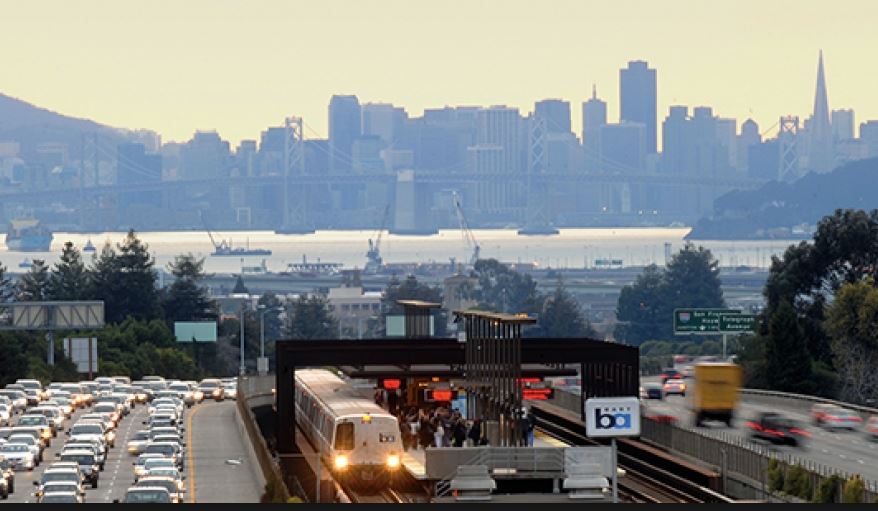Last Monday, the Board of Supervisors’ Land Use and Transportation Committee voted unanimously to recommend approval of legislation that would increase the Transportation Sustainability Fee (“TSF”) citywide for large, non-residential projects by $5, except within the proposed Central SoMa Plan area, where the associated increase would be $2.
The TSF was adopted in November 2015, replacing and expanding upon the former Transportation Impact Development Fee. TSF requires citywide residential, non-residential, Production, Distribution, and Repair projects to pay a fee towards provisions of transit infrastructure and services necessary to accommodate increased demand generated by development.
The pending legislation, sponsored by Supervisor Peskin, would increase the TSF for large non-residential projects (those containing more than 99,999 gsf) citywide from $19.04/gsf to $24.04/gsf, and would increase the rate associated with such projects in the proposed Central SoMa Plan area from $19.04/gsf to $21.04/gsf. The legislation would not impact TSF rates for residential or smaller-scale development.
Proponents argue that this fee increase is needed to address a $22 billion dollar shortfall anticipated by the Transportation Task Force 2045 for transportation projects over the next 27 years. SFMTA staff estimated that the legislation will generate around $11.4 million in additional fees – approximately 8.2 million of which would come from Central SoMa Plan area projects.
Two weeks ago, the San Francisco Planning Commission voted unanimously to recommend approval of the increased TSF fee, contrary to Department staff’s recommendation to explore modifications such as exempting Central SoMa Plan area development. Staff’s recommendation was based on concerns that imposition of additional TSF fees would impact the financial feasibility of large development in Central SoMa, which will already be subject to a range of new and increased development impact fees. The Central SoMa Plan is anticipated to generate approximately $2 billion dollars in public benefits ($5 million of which is pegged for local and regional transit improvements).
At last week’s Land Use Committee hearing, Committee members voted unanimously to recommend approval of the legislation, but noted a need to take a comprehensive look at impacts of the broader public benefits package for the Central SoMa Plan, which is anticipated to come before them in late June.
This isn’t the first attempt to increase the TSF. In 2016, Supervisors Avalos, Campus, and Marr introduced similar legislation to increase TSF fees by $2/gsf on large non-residential development, but it was ultimately vetoed by Mayor Ed Lee.
The TSF legislation is anticipated to come before the full Board within the next few weeks.
Authored by Reuben, Junius & Rose, LLP Attorney, Melinda Sarjapur
The issues discussed in this update are not intended to be legal advice and no attorney-client relationship is established with the recipient. Readers should consult with legal counsel before relying on any of the information contained herein. Reuben, Junius & Rose, LLP is a full-service real estate law firm. We specialize in land use, development, and entitlement law. We also provide a wide range of transactional services, including leasing, acquisitions and sales, formation of limited liability companies and other entities, lending/workout assistance, subdivision, and condominium work.


